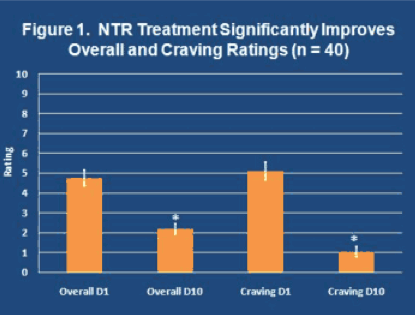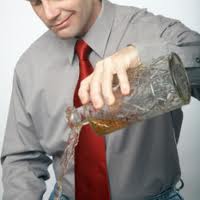Neurotransmitter Restoration Therapy for the Treatment of Substance Abuse
Authors
S. Owen, M.D., P. Norris, M.Ed., LPC, DAPA, S. Broom Gibson, Ph.D., R. Mestayer, M.D.
Introduction
This study, which was presented at the Society for Neuroscience, evaluated the effectiveness of using Neurotransmitter Restoration (NTR) for the treatment of substance abuse. Previous research had shown the negative effect substance abuse has on the brain (particularly, neurotransmitter receptor dysregulation). NTR aims to rebalance neurotransmitter function in the brain, alleviating physiological and psychological withdrawal symptoms.
Method
The study consisted of 40 patients, male and female, with substance abuse problems including opiates, psychostimulants, benzodiazepines, marijuana and alcohol. Data was collected on day 1 (prior to initial NTR treatment), during the 10-day NTR protocol, and the ten days after NTR was administered. On a scale of 1-10, patients rated: overall affect, cravings, negative affect, stress levels, and reward (potential for abuse of treatment).
Results
The study found that NTR significantly reduces cravings, stress, depression and anxiety, and improves overall well-being. The research also found that NTR shows no indication for potential abuse.









